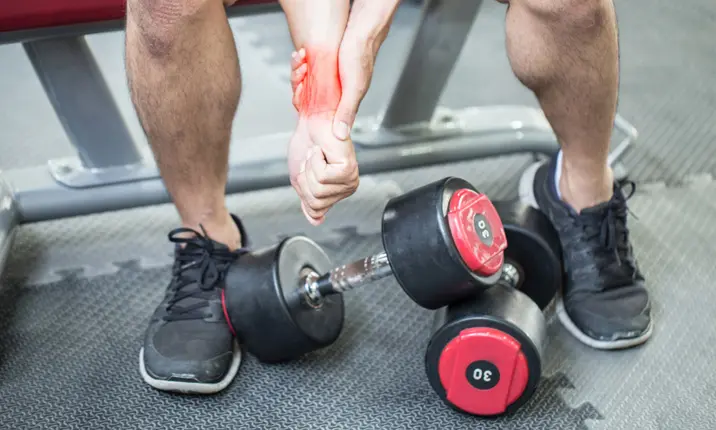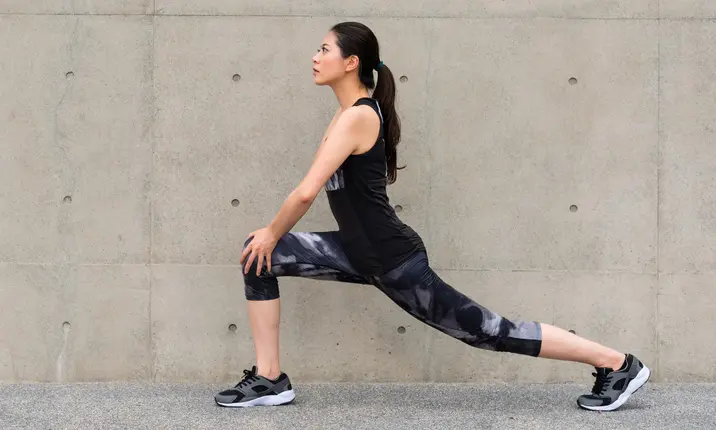The benefits of an active lifestyle
There are many proven physical and mental health benefits that come with exercise. This is because as you work out, hormones like serotonin, also known as the 'happy’ hormone, get released by your body. This leads to that 'feel good’ feeling after a workout.
Exercise is also good for cardiovascular health, increases your metabolism, helps maintain healthy blood sugar levels and enables you to better manage stress.
Other benefits of exercise include:
- Reduced risks of heart attacks
- Better weight management
- Lowered risks of type 2 diabetes and some cancers
- Stronger bones, muscles and joints
- Reduced risk of osteoporosis
Why you shouldn’t guilt yourself into overtraining
At times, getting up from your cosy bed to workout can be a challenge. Other times, you may find yourself overdoing the training bit as you push yourself to work out every single day to reach a certain fitness goal.
Exercise may be good for you, but too much of a good thing – overtraining, isn't. One of the often overlooked aspects about physical training is in giving your body the time it needs to recover.
Running the risk
When you put your body through an excessive, intense exercise routine without adequate rest and recovery, you run the risk of experiencing harmful side effects. While it's normal to feel your muscles aching after an intense workout, it may be time to take a break if you notice these signs:
- Fatigue
- Decreased performance
- Altered hormonal states
- Poor sleep patterns
- Decreased immunity
- Appetite loss
Understanding fatigue
Muscle fatigue, often associated with a state of exhaustion, usually occurs after strenuous physical activity. Although the most common sign of fatigue is muscle weakness, you may experience other symptoms such as:
- Muscle twitching
- Soreness
- Shortness of breath
- A weakened grip
- Muscle cramps
- Localised pain
The benefits of rest
The best way to take care of yourself and maximise the effects of your workouts is to ensure you receive sufficient rest between sessions. Here are three very good reasons why you should take time to rest your body between workouts:
Preventing injuries
Injuries occur when you push your body too hard to the point where your muscles and joints begin to suffer because of the lack of rest. However, an adequate amount of rest prevents your muscles from being overexerted.
Effective muscle growth
During strength training, you are essentially tearing muscle fibres. Your immune system needs a proper period of rest to repair and grow the torn muscle fibres. If you do not get adequate rest, you are not going to be able to reap the benefits of your training.
Healthy immune system
During periods of intense physical activity, your immune system is constantly being activated to repair muscles and joints. However, without proper rest, your immune system won’t be able to catch up with all the repairs your body requires, leaving you more prone to injuries.
Types of rest
Depending on the condition of your muscles and joints following an intense workout, your body may require either a passive rest day or a day of active recovery.
Passive rest
Passive rest is to take a day or two off from training and do almost none or minimal physical activity throughout your day. This is recommended if you feel as if your body has been overexerted and you don’t want to risk getting an injury.
Active recovery
On the other hand, active recovery is a combination of dynamic stretches and low to moderate intensity physical activity, such as walking, tossing a ball around or going for a light bicycle ride. This promotes blood flow throughout your body and helps it get the nutrients and recovery it needs.
The rule of thumb
The general rule is to have at least one day of rest before working on similar muscle groups again. However, there are other factors that determine how much rest your body needs after a workout, such as the intensity and frequency of your trainings, your age and your fitness level.
When in doubt, always consult your doctor before embarking on a training regime or when you notice unusual symptoms.















